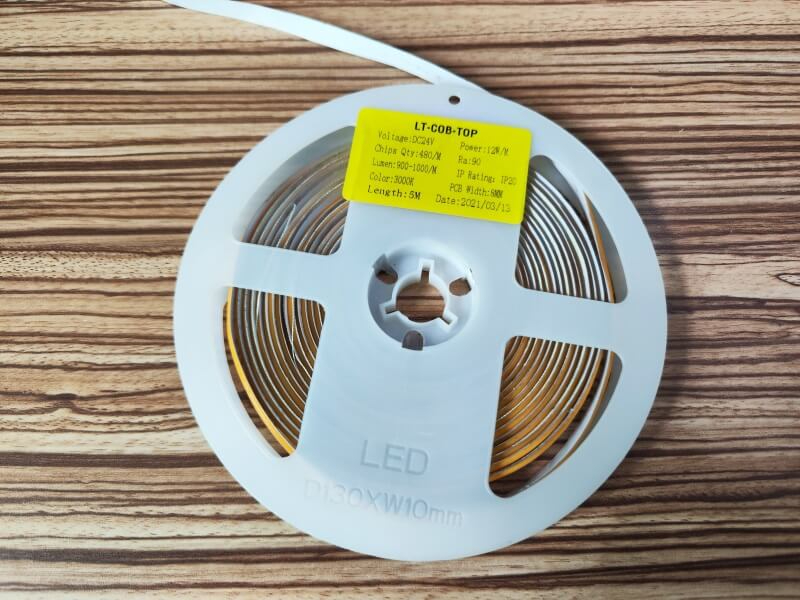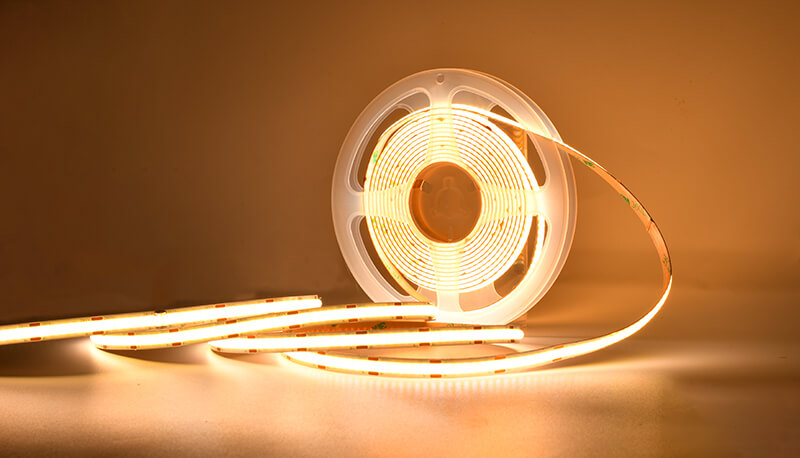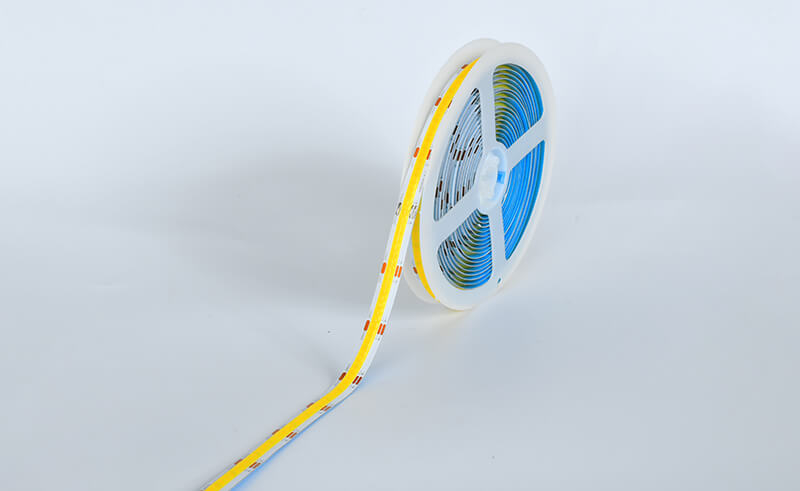High Quality OEM/ODM LED Strip Manufacturer
High Quality OEM/ODM LED Strip Manufacturer
May 24, 2024 294
One common question from users is: how many watts is a COB strip light? This article will provide a clear and practical answer, explaining the factors that determine the wattage of COB strip lights and offering guidance on selecting the right wattage for your needs.

Wattage (W) is a measure of electrical power consumption. In the context of LED strip lights, it indicates the amount of electrical power the strip uses to produce light. Higher wattage typically means higher brightness but also more power consumption.
Several factors influence the wattage of COB strip lights, including:

COB strip lights come in various wattages to suit different applications. Here is a general overview of typical wattages you might encounter:
| Type of COB Strip Light | Wattage per Meter | Applications |
|---|---|---|
| Low Wattage (5W - 10W) | 5W - 10W | Accent lighting, decorative purposes, backlighting |
| Medium Wattage (10W - 15W) | 10W - 15W | General room lighting, under-cabinet lighting, task lighting |
| High Wattage (15W - 20W+) | 15W - 20W+ | High brightness applications, commercial spaces, outdoor lighting |
The wattage of a 24V COB LED strip depends on its design and power consumption per meter, as COB (Chip-On-Board) LED strips vary in power rating. Generally, 24V COB LED strips have power ratings between 10W to 15W per meter, though some high-density strips can consume up to 20W per meter or more.
To determine the exact wattage, you can use the formula:
Total Wattage = Watts per Meter × Length of Strip in Meters \text{Total Wattage} = \text{Watts per Meter} \times \text{Length of Strip in Meters} Total Wattage=Watts per Meter×Length of Strip in Meters
For example, if you have a 5-meter strip rated at 15W per meter, the total wattage would be:
15 W × 5 = 75 W 15W \times 5 = 75W 15W×5=75W
If the power per meter isn’t specified, check the product’s specifications on the manufacturer’s website or packaging.

Determine the purpose of the lighting. For accent or decorative lighting, lower wattage is sufficient. For general room lighting or task lighting, medium wattage is appropriate. For high brightness needs, such as commercial or outdoor spaces, higher wattage is recommended.
Higher wattage generally translates to higher brightness. Consider the lumens per watt (lm/W) rating, which indicates the efficiency of the light. Efficient COB strip lights provide more light output per watt, delivering better performance with lower power consumption.
Ensure your power supply can handle the total wattage of the COB strip light. Calculate the total power requirement by multiplying the wattage per meter by the total length of the strip. For example, a 5-meter strip with a wattage of 10W per meter will require a 50W power supply.
Choose COB strip lights with high efficiency to reduce energy consumption and lower electricity bills. Look for strips with high lumens per watt and good heat dissipation properties to ensure longevity and optimal performance.
The wattage of COB strip lights varies depending on their design, LED density, and intended application. By understanding the typical wattages and their applications, you can select the right COB strip light to meet your lighting needs. Whether for accent lighting, general room illumination, or high brightness applications, choosing the appropriate wattage ensures efficient and effective lighting. Make sure to evaluate the brightness, power supply capacity, and energy efficiency to achieve the best results for your specific requirements.
If you need assistance from professionals, feel free to contact us. We are here to provide you with expert help and support for all your needs. Don't hesitate to reach out to our team for personalized assistance and solutions. We look forward to serving you.
Our sales will reply to you within 2 hours.
